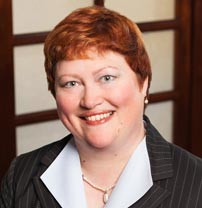July 22, 2014

By Rebecca Sczepanski, HunterMaclean
The United States Supreme Court’s 2013 Term ended June 30 with the high-profile Hobby Lobby opinion, which raised more questions than it answered.
In a 5-4 decision, the Supreme Court held that the Affordable Care Act’s contraception mandate, as applied to for-profit closely-held corporations with religious objections, violates the Religious Freedom Restoration Act (RFRA) and is therefore unlawful. The full impact of the Hobby Lobby decision is yet to be seen and developments occur daily. The majority opinion was careful to say it was a narrow decision, based only on its specific facts and the language of the RFRA, and was not decided on Constitutional grounds. The Hobby Lobby owners objected only to four treatments they considered “abortifacients,” or promoting abortions, and not to all contraceptives.
Under Hobby Lobby’s reasoning, the RFRA applies to “persons,” which under Federal law includes corporations. The Court said there was no basis for treating for-profit and non-profit corporations differently under this definition. Therefore, it said, the required coverage substantially burdened the corporations’ free exercise of religion, because other alternatives were available. As an example, the Court cited the alternative made available to non-profit religiously-affiliated corporations – to file a form certifying the religious objection, which the government uses to notify insurers to provide the contraceptives at no cost to the corporation or the individual.
Yet later that same day, the 11th Circuit Court of Appeals, which includes Georgia, cited Hobby Lobby in an order preliminarily upholding a challenge to this same certification requirement brought by Eternal Word Television Network. The terse statement suggested that the judges believed the reasoning of the Hobby Lobby decision gave them no choice. It now appears the judges may have been correct: on July 3, the Supreme Court issued an order preliminarily preventing the U.S. government from enforcing the filing requirement against Wheaton College, a religious non-profit.
Critics also question how Hobby Lobby could be applied to object to more broad-based medical treatments such as vaccinations, pharmaceuticals, or the use of medical devices and drugs manufactured using specific materials that violate certain religious beliefs. Indeed, the Supreme Court itself has already begun to expand the application of its decision to broader factual situations. The day following its Hobby Lobby opinion, the Court issued orders in six additional cases which challenged the requirement as applied to all contraceptive methods, not just the four treatments to which Hobby Lobby objected. The three decisions which held against corporations were sent back for further consideration, while the three which ruled in favor of objecting business owners were allowed to stand.
It is not yet clear who will decide how religious a company must be to bring such a challenge, and there is concern that the ruling could allow employers to discriminate based on differing religious beliefs. Courts may also be placed in the difficult position of determining the sincerity of a corporation’s religious beliefs, and therefore its eligibility for an exemption.
The fast-moving developments in this area can make it difficult to navigate employee benefits issues as employers begin planning for their 2015 health benefits. Although owners of closely-held businesses may soon have more latitude in structuring employee benefits, caution may be the best strategy for the immediate future while these issues are resolved. Consult with an employment benefits attorney to ensure that your company is taking adequate steps to avoid potential lawsuits, damages, and penalties.




